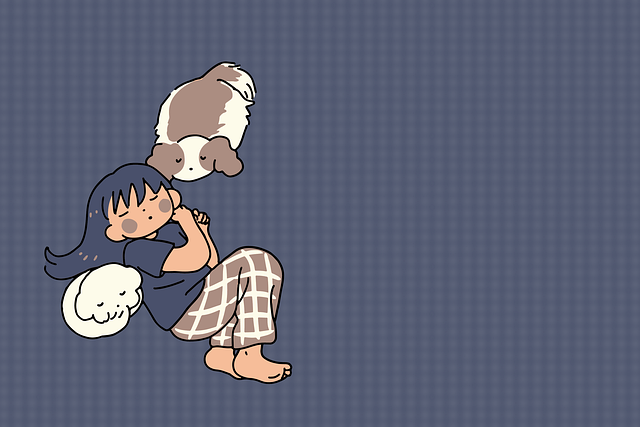Why Rest is Crucial for Success and Achieving Your Goals
When you think about success, you might picture long hours, grinding through the night, and relentless hustle. After all, we’ve been told that success demands sacrifice and pushing ourselves to the limit. But what if that’s only half of the equation? What if real, sustainable success also relies on rest?

The Misunderstood Role of Rest
Many believe rest is a luxury, something we can indulge in only after we’ve achieved our goals. But rest isn’t the enemy of hard work—it’s actually a powerful tool to enhance it. Research shows that taking breaks and getting quality sleep can improve productivity, sharpen decision-making, and even foster creativity.
In a world that often glorifies hustle culture, it’s easy to neglect rest. But the science tells us it’s essential for our mental, emotional, and physical well-being. According to the National Heart, Lung, and Blood Institute (NHLBI), sleep deficiency impacts every area of our health—from cognitive functioning to emotional regulation to long-term physical health (NHLBI Sleep Deprivation and Health Effects). The Centers for Disease Control and Prevention (CDC) reports that about 1 in 3 adults in the U.S. don’t get adequate rest. Chronic sleep issues affect millions of people, leading to serious health risks, including heart disease, diabetes, and depression.
How Rest Fuels Productivity
Working longer hours doesn’t automatically mean achieving better results. Think of your brain as a battery—just as devices need recharging, your mind needs rest to perform at its best. Without it, you’re more likely to make mistakes, lose focus, and face creative blocks.
The American Psychological Association found that short breaks during the day can prevent burnout, boost productivity, and enhance creativity. When we give our brains a chance to pause and reset, new ideas emerge, and complex problems become easier to solve. This is why successful companies like Google and Microsoft encourage employees to take breaks and even offer nap spaces to recharge.
Recognizing Burnout: The Consequence of Ignoring Rest
Prolonged stress without rest can lead to burnout, a state of complete mental, physical, and emotional exhaustion. The Queensland Health department describes burnout as more than just stress—it’s a sense of detachment, hopelessness, and loss of motivation (Darling Downs Health - Signs of Burnout). Signs of burnout include:
- Physical Symptoms: Headaches, digestive issues, fatigue, frequent illness, and changes in appetite or sleep.
- Emotional Symptoms: Feeling helpless, cynical, or detached; low self-esteem; loss of motivation.
- Behavioral Symptoms: Reduced performance, social withdrawal, procrastination, mood swings, or using substances to cope.
Preventing burnout requires listening to our bodies and minds, taking time to rest, and seeking support from others. If you’re feeling overwhelmed, making time for self-care and reconnecting with your priorities can be a first step toward recovery.
Rest: A Sanctuary for Mind, Body, and Self
Rest goes beyond sleep. It's a period when our minds unwind, our bodies reset, and we let go of daily stresses, worries about the future, and feelings of “not being enough.” Rest allows us to pause and reconnect with ourselves. It’s a chance to reflect on where we are, appreciate our journey without comparison, and cultivate gratitude for ourselves.
Taking time to rest is also a way to nurture self-awareness. It allows us to become the main character in our own story, seeing ourselves with appreciation rather than self-criticism. Rest is a time to center ourselves, to acknowledge the challenges we’ve overcome, and to be proud of our progress.
Becoming the Ruler of Your Own Kingdom
Imagine each of us has an inner “kingdom,” with our mind and body as our temple. Our well-being—our mental resilience, physical fitness, and overall health—are the loyal “subjects” who work to keep us strong and thriving. When we rest, we’re taking care of this kingdom, ensuring that our subjects are well-nourished and able to continue supporting us.
To rest is to treat our bodies and minds with respect, strengthening our resilience so our “kingdom” remains fortified and prepared for life’s challenges. Sustainable success requires us to nurture our minds and bodies, honoring the needs of our “subjects” so we can continue building and ruling our lives with confidence and health.
The Health Benefits of Quality Sleep
Sleep is not just a way to recharge; it’s essential for maintaining both mental and physical health. During sleep, our bodies work on everything from brain function to immune health. Here are some ways quality sleep improves our overall well-being:
- Mental Health: Sleep helps your brain form new pathways to learn and remember information. A good night’s sleep has been shown to improve learning and problem-solving skills. Conversely, sleep deficiency changes brain activity, making it harder to control emotions and behavior and cope with change. Studies have also linked sleep deficiency to depression, increased risk of suicide, and impulsive behaviors.
- Physical Health: Sleep is crucial for physical health. According to the NHLBI, quality sleep:
- Heals and repairs your heart and blood vessels.
- Helps regulate hunger hormones (ghrelin and leptin), which control our desire to eat. Sleep deficiency increases ghrelin, making you feel hungrier than when well-rested.
- Affects insulin response—lack of sleep can cause elevated blood sugar levels, increasing the risk of diabetes.
- Supports growth and development—deep sleep triggers the release of growth hormones in children and teens.
- Strengthens immunity by helping the body’s natural defenses fight germs and infections.
- Reduces the risk of chronic conditions like heart disease, high blood pressure, obesity, and stroke.
The Different Types of Rest You Need
When we think of rest, it’s not just about a good night’s sleep. Rest can take on many forms, and achieving balance among them is key to our well-being:
- Physical Rest – This includes sleep and physical relaxation. Without it, our bodies can’t recharge, leaving us drained and sluggish.
- Mental Rest – A break from focus-heavy tasks allows our minds to reset. Short breaks, breathing exercises, or simply stepping away from screens can help.
- Creative Rest – When we let go of problem-solving or intense focus, we create space for new ideas. Spending time in nature, enjoying art, or pursuing a hobby can help us recharge creatively.
- Emotional Rest – Allowing ourselves time away from stressors and the pressures of social media helps reduce mental clutter.
- Social Rest – Setting boundaries on social interactions when we’re feeling overwhelmed allows us to recharge without the demands of external engagement.
Success Stories: How Rest Powers Innovation
Some of the world’s most successful innovators are big believers in rest. Arianna Huffington, co-founder of The Huffington Post, is one such advocate. After experiencing a personal burnout, she dedicated herself to understanding the science of sleep and rest, writing The Sleep Revolution to highlight how resting well can boost productivity and creativity. Bill Gates, too, has spoken about how breaks allow him to return to problems with fresh perspectives.
Practical Tips to Make Rest a Part of Your Success Plan
If rest is so important, how can we prioritize it? Here are a few simple ways to make rest part of your life:
- Schedule Breaks – Just as you block out time for meetings, block out short breaks during your day to reset.
- Practice Mindfulness – Taking a few minutes to focus on your breath or clear your mind can help you feel more grounded and centered.
- Set Boundaries – Avoid checking emails late at night or on weekends, if possible. Give yourself permission to unplug.
- Sleep Hygiene – Create a calming bedtime routine. Sleep is the foundation of rest, so make sure you’re setting yourself up for a good night’s sleep.
Success Redefined: A Balance of Effort and Rest
The more we learn about rest, the clearer it becomes that success is about balance. Our minds and bodies are designed to function in cycles, not in constant grind mode. Sustainable success respects these natural cycles, knowing when to push forward and when to recharge.
In the end, rest isn’t the opposite of success—it’s a critical ingredient in the recipe. The next time you feel guilty for taking a break, remind yourself that you’re actually investing in your future self, your ideas, and your ultimate success.
References
- National Heart, Lung, and Blood Institute. Sleep Deprivation and Health Effects.
- Darling Downs Health. Signs You Might Be Experiencing Burnout and How to Regain Balance in Your Life.
